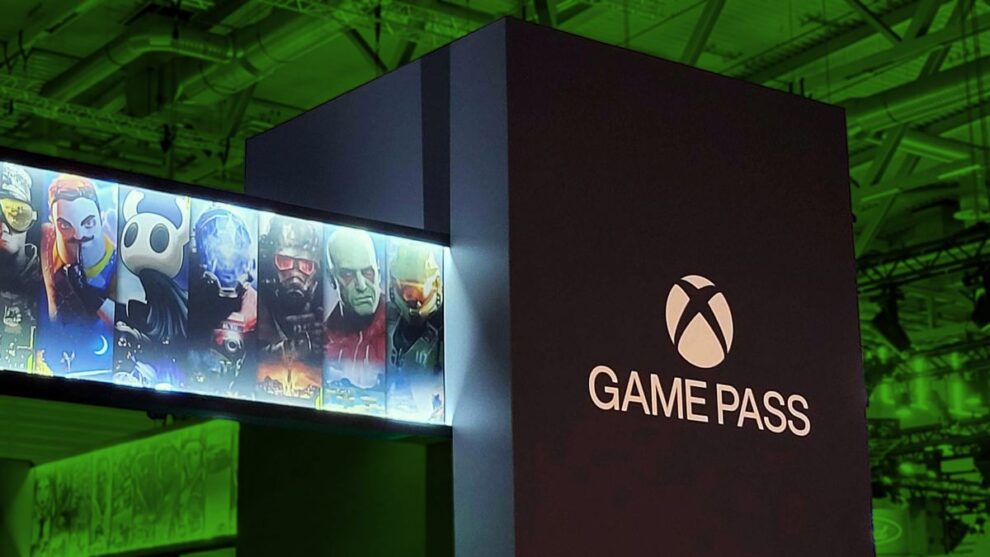Xbox Game Pass, Microsoft’s prominent subscription service, is at a crucial crossroads, at least according to Raphael Colantonio, the founder of Arkane Studios—the creative force behind acclaimed titles like Dishonored and Prey. Colantonio, who started Arkane long before its acquisition by Microsoft, recently described Game Pass as an “unsustainable model” that has been “damaging the industry for a decade.” His stark warning? The service will “either kill everyone else, or give up.”
Key Takeaways:
- Unsustainable Model: Raphael Colantonio argues that Game Pass isn’t financially viable over the long term.
- Industry Damage: He believes the service has hurt the broader gaming ecosystem, particularly in terms of traditional game sales.
- Binary Future: Colantonio sees only two possible outcomes for Game Pass: monopolistic dominance or total abandonment.
- Microsoft’s Funding: Game Pass is currently propped up by Microsoft’s deep financial reserves, which he implies can’t go on indefinitely.
- Sales Cannibalization: Concerns linger that day-one releases on the platform are eating into direct game sales.
Colantonio’s remarks, shared on X (formerly Twitter), underline a growing skepticism in the development community about the long-term viability of subscription services like Xbox Game Pass. While it’s undeniably appealing to players—offering excellent value—he contends that this affordability has come at a cost. That cost, he says, is largely absorbed by Microsoft’s vast financial power, which has effectively insulated Game Pass from the harsh economic realities faced by most developers and publishers.
He doesn’t mince words when describing the challenges. Colantonio sees a fundamental incompatibility between Game Pass and traditional game sales. Offering day-one access as part of a subscription may thrill consumers, but it undercuts the very foundation many studios rely on: direct purchases. And while Microsoft may provide upfront deals to get games on the platform, he suggests these don’t necessarily ensure long-term financial health—especially not for smaller, independent developers.
His perspective isn’t just theoretical. It’s informed by experience. His new studio, WolfEye, released Weird West in 2022—a title that launched directly on Game Pass. It’s this firsthand involvement that adds weight to his concerns.
His comments also arrive at a moment of notable turbulence within Microsoft’s gaming division. Recent layoffs, the scrapping of projects like Perfect Dark and Everwild, and what appears to be a strategic shift toward generative AI hint at larger internal recalibrations.
Michael Douse, Publishing Director at Larian Studios, the team behind Baldur’s Gate 3, has voiced similar doubts. He poses a pointed question: what happens “when all that money runs out?” It’s a concern that’s quietly echoed across many corners of the industry. Both he and Colantonio suggest a more measured approach—perhaps one where Game Pass focuses on back-catalogue titles rather than marquee day-one releases. That way, it might complement rather than cannibalize traditional sales.
Another issue being debated is how services like Game Pass influence consumer behavior. Critics argue that it trains users to expect content without direct purchase, potentially cheapening the perceived value of individual titles. Yet, others push back, claiming Game Pass opens doors for players to discover games they might otherwise overlook—something particularly beneficial for smaller or niche titles.
So, where does this all leave us? Well, the appeal of subscription services is hard to deny. For gamers, it’s a pretty sweet deal. But whether it’s a win for developers—and for the long-term health of the gaming industry—remains very much up in the air. Microsoft has some big decisions to make, and the rest of the industry is watching closely.
FAQ
Q1: Who is Raphael Colantonio?
A1: Raphael Colantonio is the founder of Arkane Studios, a respected video game developer known for Dishonored and Prey.
Q2: What is Xbox Game Pass?
A2: Xbox Game Pass is a subscription service from Microsoft that gives users access to a rotating catalog of games for a monthly fee, including new titles from Xbox Game Studios on their release day.
Q3: Why does Raphael Colantonio call Game Pass “unsustainable”?
A3: He argues it relies too heavily on Microsoft’s financial backing, masking economic pressures and harming traditional sales models.
Q4: What is “sales cannibalization” in the context of Game Pass?
A4: It’s the concern that launching games directly onto Game Pass reduces direct purchases, potentially slashing revenue for developers.
Q5: What do developers suggest as a more sustainable model for game subscriptions?
A5: Some, including Colantonio and Michael Douse, recommend focusing on older, back-catalogue games rather than day-one releases to mitigate the negative impact on direct sales.








